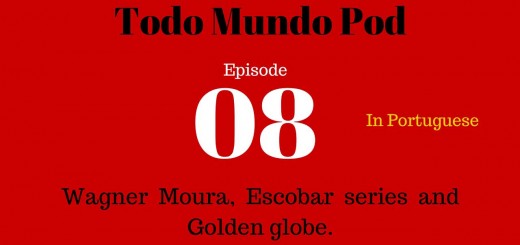Portuguese relative pronouns – Using “que” pronoun in Portuguese

Portuguese relative pronouns – How to use “que” pronoun in Portuguese
Hello and welcome to our Portuguese Basic Tips about Portuguese relative pronouns!
Well I decided to create a new series to this podcast. For the next episodes, I will speak about Portuguese relative pronouns. It won’t be difficult to understand, but I could say that it is something that all Portuguese learners should know about.
Click on the link to listen to our podcast about how to compare things using adjectives
So that, I’ll split this subject during the next weeks in order to make things easier to understand.
Portuguese relative pronouns – Definition
Relative pronouns are usually used to replace a previous sentence term, this way we can avoid the repetition of the same word and we can establish kind of a connection between the two phrases
Today we are going to learn about the relative pronoun “que” in Portuguese.
Listen to those separate phrases:
- Este anel é bonito (This ring is beautiful)
- Eu ganhei este anel (I won this ring)
Now, look at this magic! We are going mix those phrases.
- Este anel que ganhei é bonito (This ring that I won is beautiful)
Have you noticed that the word “anel” (ring) was replaced for the relative pronoun “que”? So in this case, we could say that the word “que” has the same “value” of “that” in English. IN THIS CASE (with capital letters).
Universal pronoun
The relative pronoun “que” is also called “universal relative” because we can use it in many ways to replace people and things – in the singular or plural way.
For instance:
- Eu conheço esta garota que está jogando (I know this girl that is playing)
- Eu conheço estas garotas que estão jogando (I know these girls that are playing)
Last thing about it – Verbal Regency
Listen to it:
- Eu gosto daquela música. (I like that song)
- Eu aprendi aquela música. (I learned that song)
- Eu aprendi aquela música de que gosto (I learned that song I like)
There are some Portuguese verbs we need to use accompanied by a preposition.
For instance, in Portuguese we say “ Eu gosto de você”. In a literal sense I could translate that as “I like of you”. I know, it’s wrong in English, but in Portuguese it isn’t.
So, if you are using a relative pronoun, you should also use a preposition in front of it, in those cases, as I did.
- Eu aprendi aquela música de que gosto.
This is something that in Portuguese we call “regência verbal” (verbal regency) – just in case you want to study about it.
The good news is that in daily conversation people in Brazil barely use it in a formal way. So, if you say, for example “Eu aprendi aquela música que gosto”, we will understand what you mean. In fact, if you want to be boring, you can correct us.
Become a Premium Member to download our transcripts
If you want to increase your Portuguese vocabulary, click on the link to study the days of the week and the months of the year in Portuguese
Click on the link to study about relative pronouns in Portuguese (only in Portuguese)
That’s enough for today!
I hope it will be useful for you
See you next time!
Thanks
Marcos Sales
Podcast (portuguesebasictips): Play in new window | Download







Recent Comments